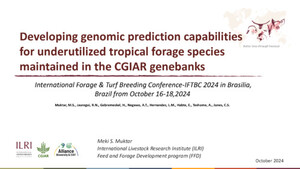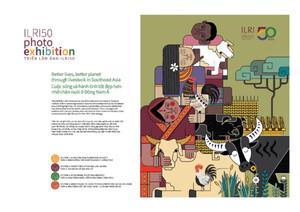
Moving health to the heart of agri-food policies; mitigating risk from our food systems
Abstract
Our food systems are progressively more industrialized and consolidated with many modern food value chains involving multiple countries and continents, and as such being associated with changes in risk profile and impacts of emerging and re-emerging diseases. Disease outbreaks that sweep through a single region can have massive impacts on food supply, while severe outbreaks of human pathogens can disrupt agricultural labor supply or demand for products perceived as ‘unsafe’. Market pressures have generally rewarded production of cash crops for fuel and energy dense, low nutrient processed foods over production of fruits and vegetables for local consumption. Climbing rates of food-related NCDs and pre-existing conditions leave the population increasingly susceptible to infectious diseases that are often driven by or arise from the food system. Therefore disease and diet from our food systems cause impacts on human health, and human health issues can impact on the functioning of the food system. The COVID-19 outbreak is the most recent example of food system driven disease emergence and of massive supply and demand shocks in the food system, experienced as a direct and indirect result of this disease. The effects of the food system on disease spread (and vice versa) must be addressed in future plans to prevent and mitigate large scale outbreaks. Health policies must acknowledge the food system as the base of our health system, as must agri-food policy recognize the pre-eminence of human health (directly and indirectly) in decision making.
Citation
Patterson, G.T., Thomas, L.F., Coyne, L.A. and Rushton, J. 2020. Moving health to the heart of agri-food policies; mitigating risk from our food systems. Global Food Security 26: 100424.









